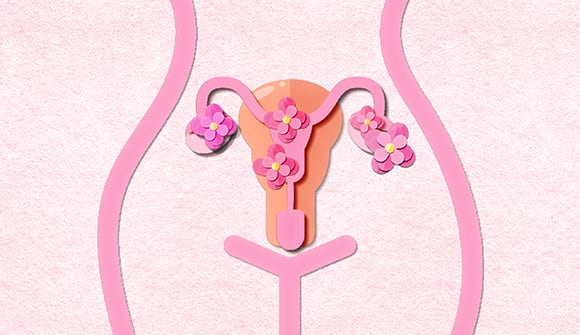Pelvic floor health for new moms
What’s normal, what’s not, and when to see your OB/GYN.
Article Date:

Any woman who delivers her baby vaginally will experience a number of changes to her pelvic floor. It’s all part of the birth process and unique to each mother.
“Birth is as different for every woman as pregnancy is, and what you experience afterward during recovery is just as unique,” said Patricia McFall Calhoun, MD, FAAFP, medical director of Women’s Health Strategy at Baptist Health and a family physician with Baptist Primary Care – Mandarin North.
What is the pelvic floor?
The pelvic floor is a group of muscles and ligaments that stretch across the pelvic bones. It supports all your pelvic organs, including your bladder, bowels, uterus and vagina.
“It encompasses all the female muscles that help us control our urine and bowel function and also contribute to our sexuality,” said Dr. Calhoun.
Postpartum pelvic floor exercises
During vaginal childbirth, pushing seven to eight pounds of baby through the pelvic floor can, unsurprisingly, put some stress on a mother’s body.
“When that happens, the muscles of the pelvic floor are stretched. Sometimes, there are partial or more significant tears, and sometimes, there’s an episiotomy, which is an incision made in the perineum to allow more room for the baby to pass through during childbirth. Fortunately, there’s a lot of stretch down there, but those muscles still have to return to normal.”
So, how can new and veteran moms get their pelvic floor back in shape?
“It may take weeks to months to feel back to normal, and while one’s pelvic floor musculature may never get back to as tight as before vaginal delivery, there are exercises, formal pelvic floor physical therapy, and various other treatment regimens available to help restore the pelvic area to ‘near’-normal,” Dr. Calhoun explained.
Kegels are the most well-known pelvic floor exercises, but all the Kegels in the world won’t do any good unless done correctly.
“There’s a large number of people who just don’t do them correctly,” said Dr. Calhoun. “That’s why you might want to consider going through a pelvic-floor-certified physical therapist program that can instruct in the proper performance of pelvic exercises. Additionally, newer therapies such as nonsurgical vaginal rejuvenation – which may include injections, radiofrequency or laser therapy – may be an option for some women and show that opportunities for treatment continue to advance.”
One such medical exercise program is Baptist Health’s Total Control program for strengthening the pelvic floor, lower back and abdominal muscles, all of which contribute to pelvic health. This evidence-based program is a nonmedication, nonsurgical way to improve issues related to incontinence.
When to see a doctor
While recovering at home, moms may notice some urinary incontinence or discomfort. Dr. Calhoun said any concerning issues occurring after childbirth should be brought to your doctor’s attention, especially if they affect your quality of life.
“If you’re experiencing urinary or bowel incontinence after delivery, you should definitely talk with your OB/GYN,” she said. “Some other red flags would be fever, unusual pain, or if you’re just unsure whether what’s happening is normal.”
For mothers of more than one child, particularly if they were delivered vaginally, keeping the pelvic floor strong is especially important. Dr. Calhoun said with each pregnancy, the weight of the uterus places more strain and stress on the “sling” of the pelvic floor.
“Multiple pregnancies can lead to more pelvic floor and incontinence issues, so it’s important to keep those exercises up,” she said.
Ultimately, there's no way to avoid trauma to the pelvic floor during childbirth, but learning proper exercises for the pelvic floor muscles and surrounding muscle groups can help strengthen them once again. You can also consider starting these exercises before that beautiful baby is born to get your pelvic floor in the best shape possible.
Most importantly, a new mom should see her OB/GYN right away if she’s experiencing anything concerning after giving birth so that, together, they can get her back to normal.
Postpartum care is important for new moms
If you’re a new or expecting mom who’s struggling with depression, anxiety or other mental health conditions, The Motherhood Space may be a healing choice for you. To learn more, call 904.376.3800 (select option 4 for intensive outpatient program) or visit baptistjax.com/motherhoodspace.



